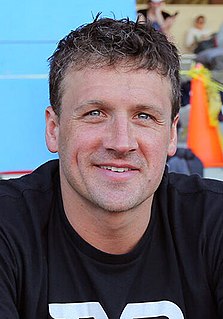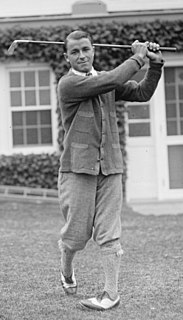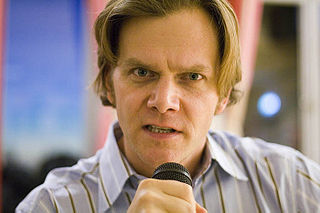A Quote by Sarah Dessen
With total strangers, it had always been my policy to expect the worst. Usually they-and those that you knew best, for that matter-did not disappoint.
Related Quotes
Perhaps the greatest rudenesses of our time come not from the callousness of strangers, but from the solicitousness of intimates who believe that their frank criticisms are always welcome, and who feel free to "be themselves" with those they love, which turns out to mean being their worst selves, while saving their best behavior for strangers.
She smiled. She knew she was dying. But it did not matter any longer. She had known something which no human words could ever tell and she knew it now. She had been awaiting it and she felt it, as if it had been, as if she had lived it. Life had been, if only because she had known it could be, and she felt it now as a hymn without sound, deep under the little whole that dripped red drops into the snow, deeper than that from which the red drops came. A moment or an eternity- did it matter? Life, undefeated, existed and could exist. She smiled, her last smile, to so much that had been possible.
Travel is never a matter of money but of courage. I spent a large part of my youth traveling the world as a hippie. And what money did I have then? None. I barely had enough to pay for my fare. But I still consider those to have been the best years of my youth. The great lessons I learned has been precisely those that my journeys had taught me.
I've always been honest with all my kids. So I - if they did well, they did well. And if they didn't, actually, I asked, did you try your best? And if they tried their best, then, you know, I back out because I expect them to be honest with me or with themselves. And I can't make you go out there and work out hard.
The policy that received more attention particularly in the past decade and a half or so has been the US cocaine policy, the differential treatment of crack versus powder cocaine and question is how my research impacted my view on policy. Clearly that policy is not based on the weight of the scientific evidence. That is when the policy was implemented, the concern about crack cocaine was so great that something had to be done and congress acted in the only way they knew how, they passed policy and that's what a responsible society should do.
Before my book, 'California,' came out, I had modest hopes for it. Or, let's put it this way - I had the same hopes that every literary fiction writer in America has: I wanted the novel to be well-received, critically. As for sales? I didn't want it to disappoint, but I didn't expect it to be a best-seller, either.
Jem’s eyes had widened, and then he’d laughed, a soft laugh. “Did you think I did not know you had a secret?” he’d said. “Did you think I walked into my friendship with you with my eyes shut? I did not know the nature of the burden you carried. But I knew there was a burden.” He’d stood up. “I knew you thought yourself poison to all those around you,” he’d added. “I knew you thought there to be some corruptive force about you that would break me. I meant to show you that I would not break, that love was not so fragile. Did I do that?
But why had he always felt so strongly the magnetic pull of home, why had he thought so much about it and remembered it with such blazing accuracy, if it did not matter, and if this little town, and the immortal hills around it, was not the only home he had on earth? He did not know. All that he knew was that the years flow by like water, and that one day men come home again.
Lord Nicholas St. John was their only hope, and she had been on the roof when he arrived, for heaven's sake. Ladies did not go traipsing about on rooftops. And certainly gentlemen did not frequent the homes of those ladies who did traipse about on roortops. It did not matter if the rooftop in question was in dire need of repair. Or that the lady in question had no choice.






































